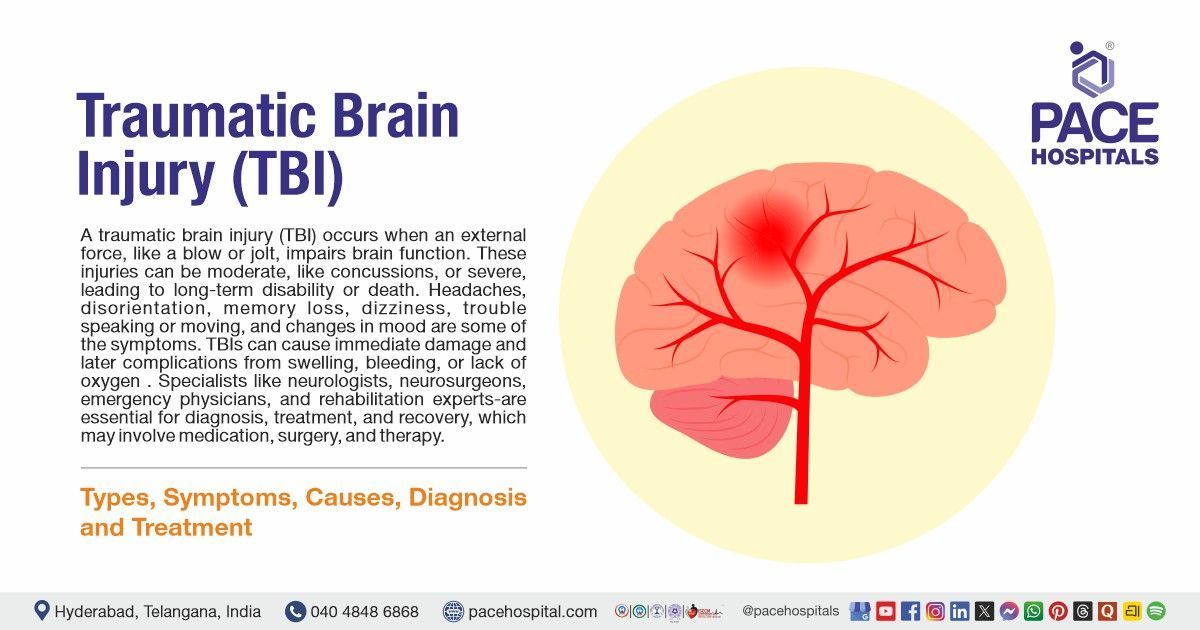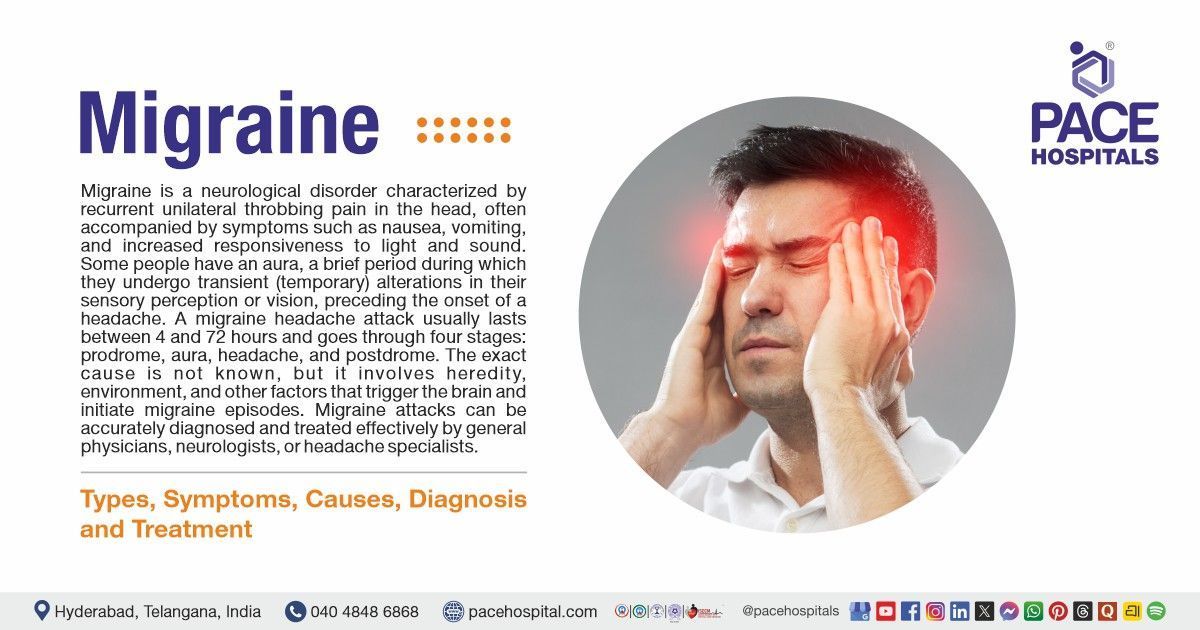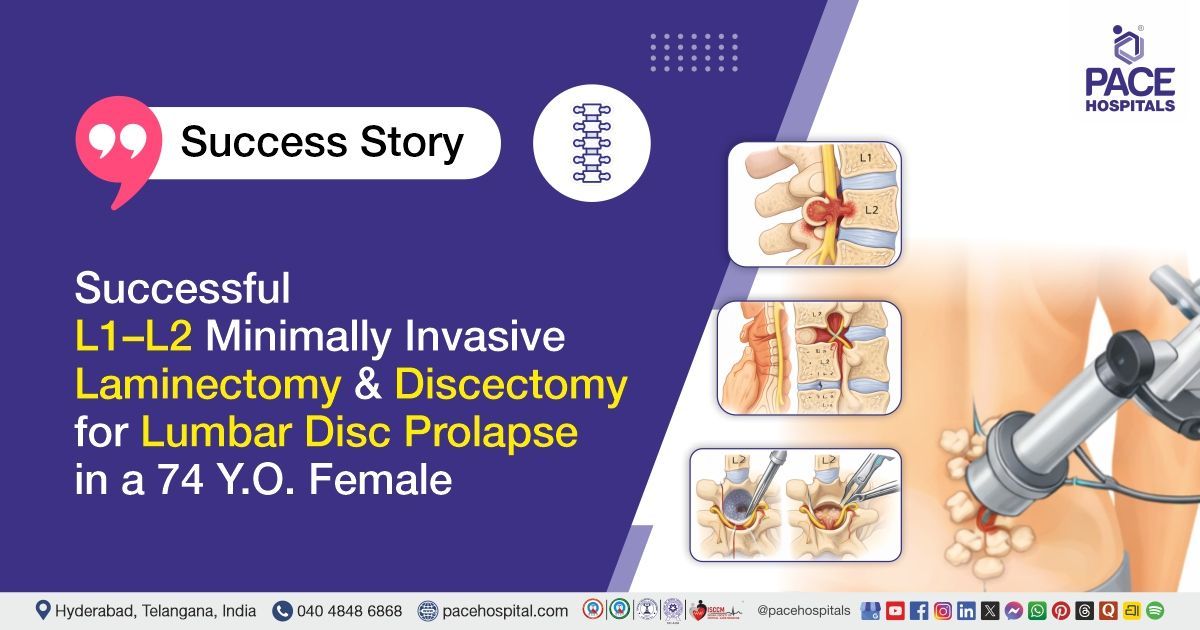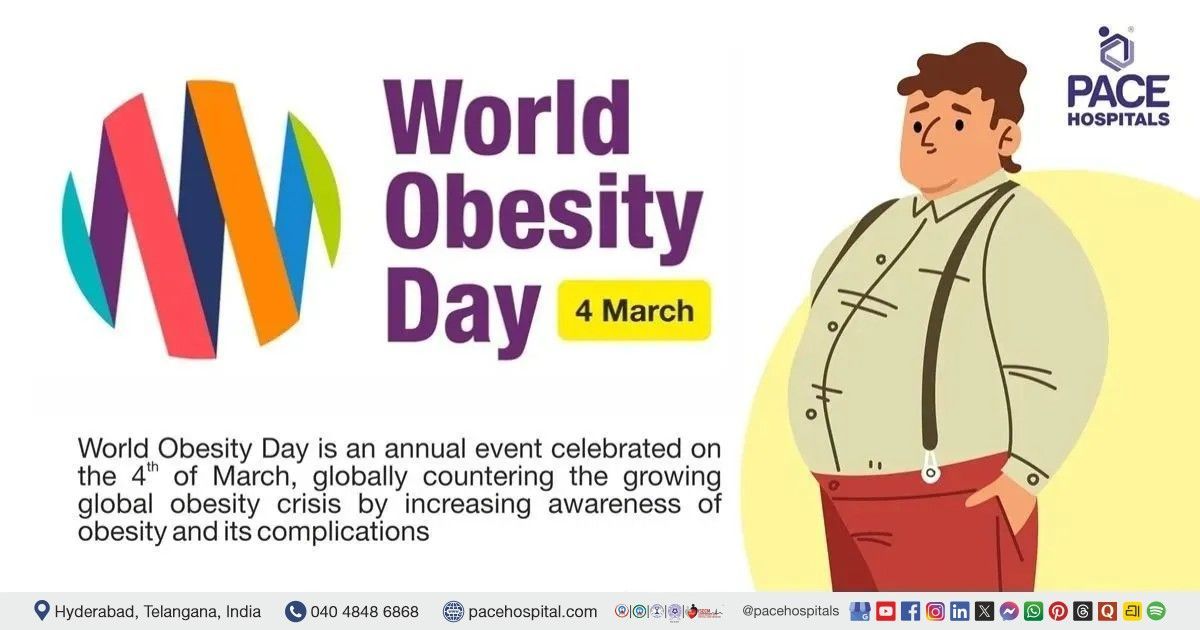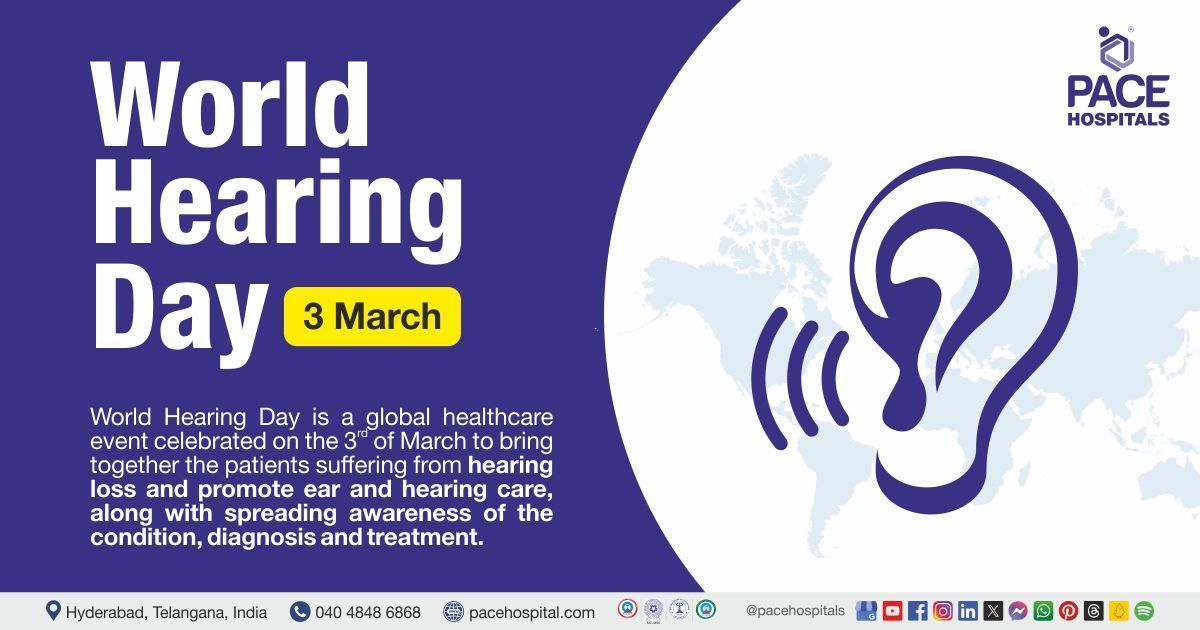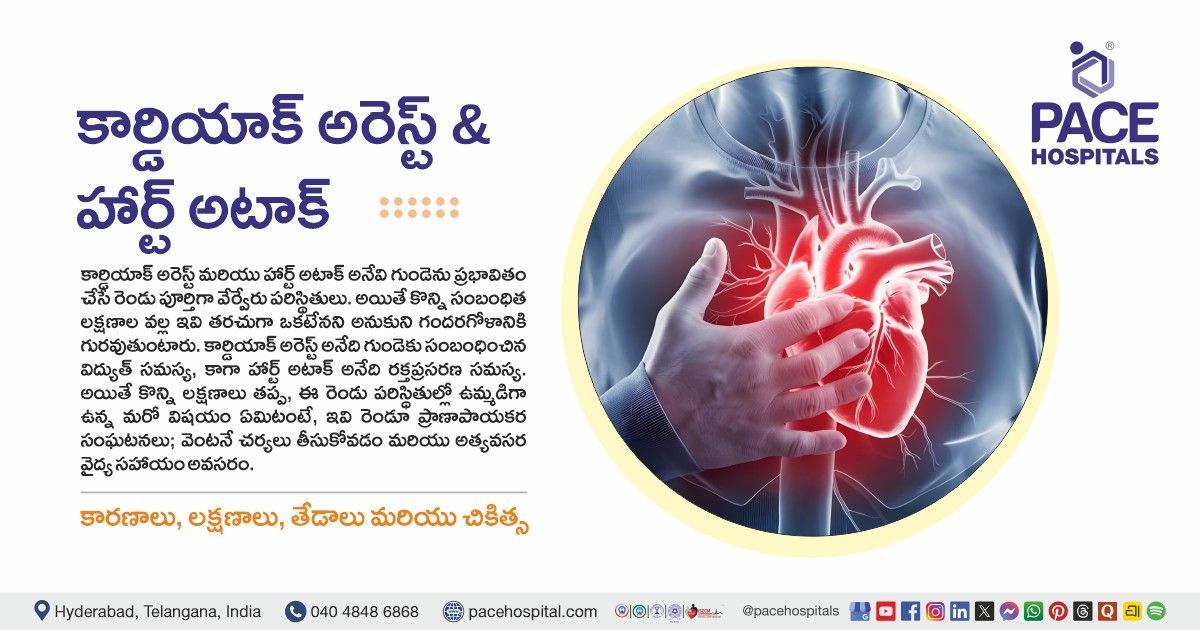Gallstones FAQs & Myths Cleared for Better Awareness
PACE Hospitals
Written by: Editorial Team
Medically reviewed by: Dr. Suresh Kumar S - Surgical Gastroenterologist, Advance Laparoscopic & Liver Transplant Surgeon
Introduction
Gallstones are among the most common digestive disorders worldwide — yet they remain surrounded by myths, misconceptions, and anxiety. Many people believe that gallstones can be "dissolved with medicines" or that removing the gallbladder will cause lifelong digestive problems. The truth, backed by medical science and decades of surgical experience, is very different.
At PACE Hospitals Hyderabad, our gastroenterology and hepatobiliary surgery experts specialize in the diagnosis and minimally invasive treatment of gallstone disease (cholelithiasis). Using advanced laparoscopic and robotic surgical systems, we ensure safe, scar-minimal, and rapid-recovery gallbladder removal procedures for both Indian and international patients.
This comprehensive FAQ article clears up the confusion — explaining the causes, symptoms, complications, and modern treatments for gallstones while dispelling persistent myths.
What causes gallstones?
Gallstones form when the bile stored in the gallbladder becomes concentrated, allowing cholesterol or bilirubin to crystallize.
Major contributing factors:
- Obesity and a sedentary lifestyle
- High-fat or high-cholesterol diet
- Frequent constipation
- Rapid weight loss or crash diets
- Multiple pregnancies (hormonal changes)
- Genetic or regional predisposition – Higher incidence in India’s “cow belt” (U.P., Bihar, West Bengal)
- Family history of gallstones
Gallstones can be cholesterol stones (most common), pigment stones, or mixed stones — and sometimes multiple stones coexist in a single gallbladder.
What problems do gallstones cause?
Gallstones often remain silent initially but can trigger acute attacks when a stone blocks the cystic or common bile duct.
Common symptoms:
- Sudden severe pain in the upper or right abdomen, often at night or after fatty meals
- Pain radiating to the back or right shoulder
- Nausea and vomiting
- Pain lasting 30 min to 6 hours (biliary colic)
If the pain persists beyond 24 hours, serious complications may have developed — including:
- Acute cholecystitis (gallbladder infection)
- Cholangitis (bile-duct infection)
- Pancreatitis (inflammation of the pancreas)
- Gangrene or perforation of the gallbladder
At PACE Hospitals, these emergencies are treated promptly by a multidisciplinary team including GI surgeons, gastroenterologists, and interventional radiologists to prevent life-threatening outcomes.
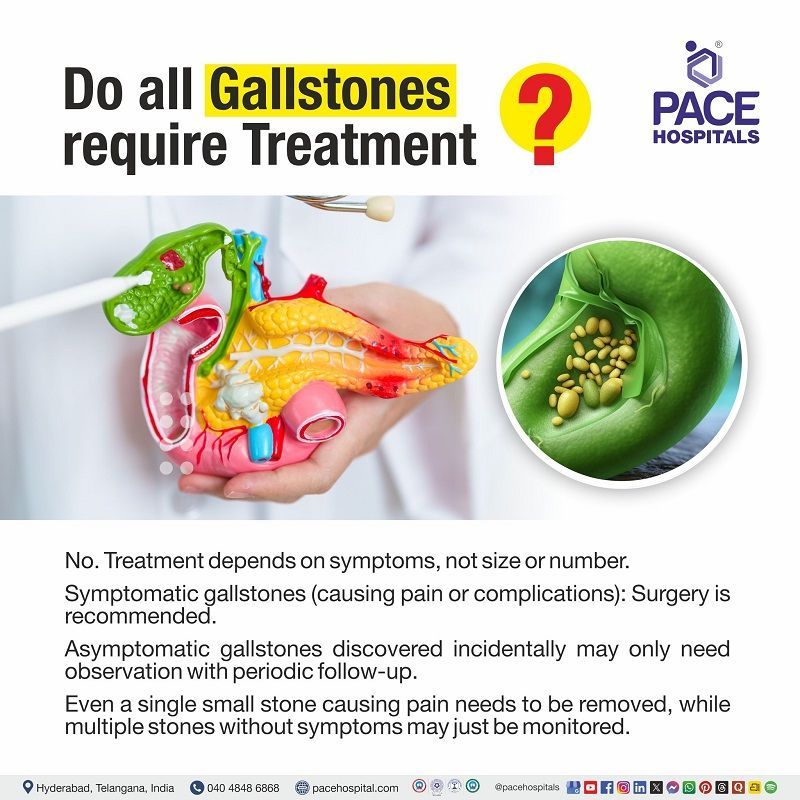
Do all gallstones require treatment?
No. Treatment depends on symptoms, not size or number.
- Symptomatic gallstones (causing pain or complications): Surgery is recommended.
- Asymptomatic gallstones discovered incidentally may only need observation with periodic follow-up.
Even a single small stone causing pain needs to be removed, while multiple stones without symptoms may just be monitored.
Can we remove only the stones and leave the gallbladder intact?
No. Unlike kidney stones, the gallbladder itself becomes diseased when stones form.
Earlier attempts (in the 20th century) to remove only the stones or dissolve them chemically resulted in recurrence within 3–6 months. Medical science now understands that the gallbladder is the source of the problem, not just a victim of it.
Therefore, the standard and permanent treatment is laparoscopic cholecystectomy — removal of the entire gallbladder along with its stones.
Will gallbladder removal cause digestion problems?
Absolutely not. This is one of the biggest misconceptions.
The gallbladder does not produce bile; it merely stores it between meals. After surgery, the liver continues to secrete bile normally, and the bile ducts enlarge slightly to store what the gallbladder once did.
Patients can resume a normal diet soon after recovery. No long-term restrictions or digestive issues occur. This has been well-proven through millions of successful surgeries worldwide.
Can gallstones be treated with native or herbal medicine?
There is no scientific evidence that Ayurveda, Unani, or homeopathic medicines can dissolve gallstones.
If a patient is asymptomatic, observation is acceptable — but once symptoms appear, the yearly risk of severe complications rises to 4–8 %, including infection, jaundice, pancreatitis, or gangrene.
Delaying surgery for native or unverified remedies may convert a simple case into an emergency. At PACE Hospitals, patients are educated to take evidence-based decisions under expert medical guidance.
Why are some people unhappy after gallstone surgery?
Sometimes, people expect a cholecystectomy to fix all abdominal complaints — bloating, gas, heartburn, or constipation. But these symptoms are not caused by gallstones in most cases.
Gallstones cause biliary pain and complications, not routine dyspepsia. When unrelated digestive issues persist post-surgery, patients may feel “surgery didn’t help.” Hence, proper pre-operative counselling is essential to set realistic expectations — a practice strictly followed at PACE Hospitals.
How are gallstones diagnosed?
Diagnosis is straightforward using non-invasive imaging and lab tests.
- Ultrasound abdomen – First-line test; identifies stones, gallbladder wall thickness, and inflammation.
- Liver-function tests (LFTs) – Elevated bilirubin or enzymes suggest bile-duct blockage.
- MRCP (Magnetic Resonance Cholangiopancreatography) – Detects stones in the common bile duct.
- CT scan / Endoscopic Ultrasound (EUS) – Used for complex or recurrent cases.
PACE Hospitals uses high-resolution ultrasound, MRCP, and EUS for early and precise diagnosis.
What is a laparoscopic cholecystectomy?
Laparoscopic cholecystectomy is a minimally invasive keyhole surgery where the gallbladder is removed through 3–4 tiny incisions.
Steps:
- General anesthesia administered.
- Small ports are placed for instruments and a camera.
- The gallbladder was carefully separated from the liver bed.
- Ducts and vessels clipped; gallbladder removed through a small incision.
Benefits:
- Minimal pain
- Discharge within 24–36 hours
- Speed recovery (back to work in 7–10 days)
- Negligible scarring
With 4K HD systems and cutting-edge energy devices, PACE Hospitals' laparoscopic GI surgeons frequently carry out this procedure, ensuring the highest level of safety and precision.
Cost of Gallstone Surgery at PACE Hospitals, Hyderabad
| Procedure | Approx. Cost (INR) | Approx. Cost (USD) | Inclusions |
|---|---|---|---|
| Basic Laparoscopic Cholecystectomy | ₹55,000 – ₹85,000 | $650 – $1,000 | Surgeon, anesthesia, 2-day stay, consumables |
| Complex / CBD-Stone Cholecystectomy | ₹95,000 – ₹1,60,000 | $1,100 – $1,900 | Includes MRCP / ERCP if required |
| Robotic / Single-Port Cholecystectomy | ₹1,70,000 – ₹2,50,000 | $2,000 – $3,000 | Robotic system, cosmetic closure included |
EMI plans, Cashless insurance, and international patient support available.
Why Choose PACE Hospitals, Hyderabad
- Expert Medical Team: A highly esteemed team of gastroenterologists, GI endoscopists, and hepatobiliary surgeons with vast clinical experience and proven expertise.
- Personalized Patient Care: Each patient receives individualized attention through systematic preoperative counseling, customized diet plans, and long-term follow-up support.
- Cutting-Edge Technology: Equipped with 4K laparoscopic operating rooms for precise care, robotically assisted surgical platforms, and advanced liver and biliary imaging systems.
- Round-the-Clock Emergency Services: 24-hour specialised emergency response for serious conditions like gallstone pancreatitis, acute cholecystitis and cholangitis.
Frequently Asked Questions on Gallstones Misconceptions
What are gallstones and how do they develop?
Gallstones are deposits of hardened cholesterol or pigment in the gallbladder that can be caused on by fatty foods, obesity, a sedentary lifestyle, or hormonal fluctuations.
Do all gallstones need surgery?
Only symptomatic gallstones require surgery. Asymptomatic stones can be observed with periodic follow-up.
Can medicines dissolve gallstones?
No reliable medicine (allopathic or herbal) can dissolve gallstones permanently. Once symptoms appear, surgery is the only definitive cure.
How serious can gallstones become if untreated?
Untreated stones may lead to infection, jaundice, pancreatitis, or gallbladder gangrene, all of which can be life-threatening.
What is the best treatment for gallstones?
Laparoscopic cholecystectomy, a minimally invasive removal of the gallbladder — is the global gold standard.
Will I face digestion problems after gallbladder removal?
No. The liver continues bile production, and other ducts enlarge to store it. Normal digestion resumes within days.
Is gallbladder surgery painful?
Modern laparoscopic techniques cause minimal discomfort. Most patients walk the same day and recover within a week.
What precautions should I take before surgery?
Avoid heavy meals, follow fasting instructions, inform the doctor of medications or allergies, and complete basic blood and ECG tests.
How long will I stay in the hospital?
Usually 24–36 hours. Complex cases may need 2–3 days for monitoring.
Why choose PACE Hospitals for gallstone treatment?
PACE Hospitals offers world-class laparoscopic & robotic gallbladder surgery, 24×7 emergency care, and expert post-operative follow-up at an affordable cost.
Share on
Request an appointment
Fill in the appointment form or call us instantly to book a confirmed appointment with our super specialist at 04048486868


